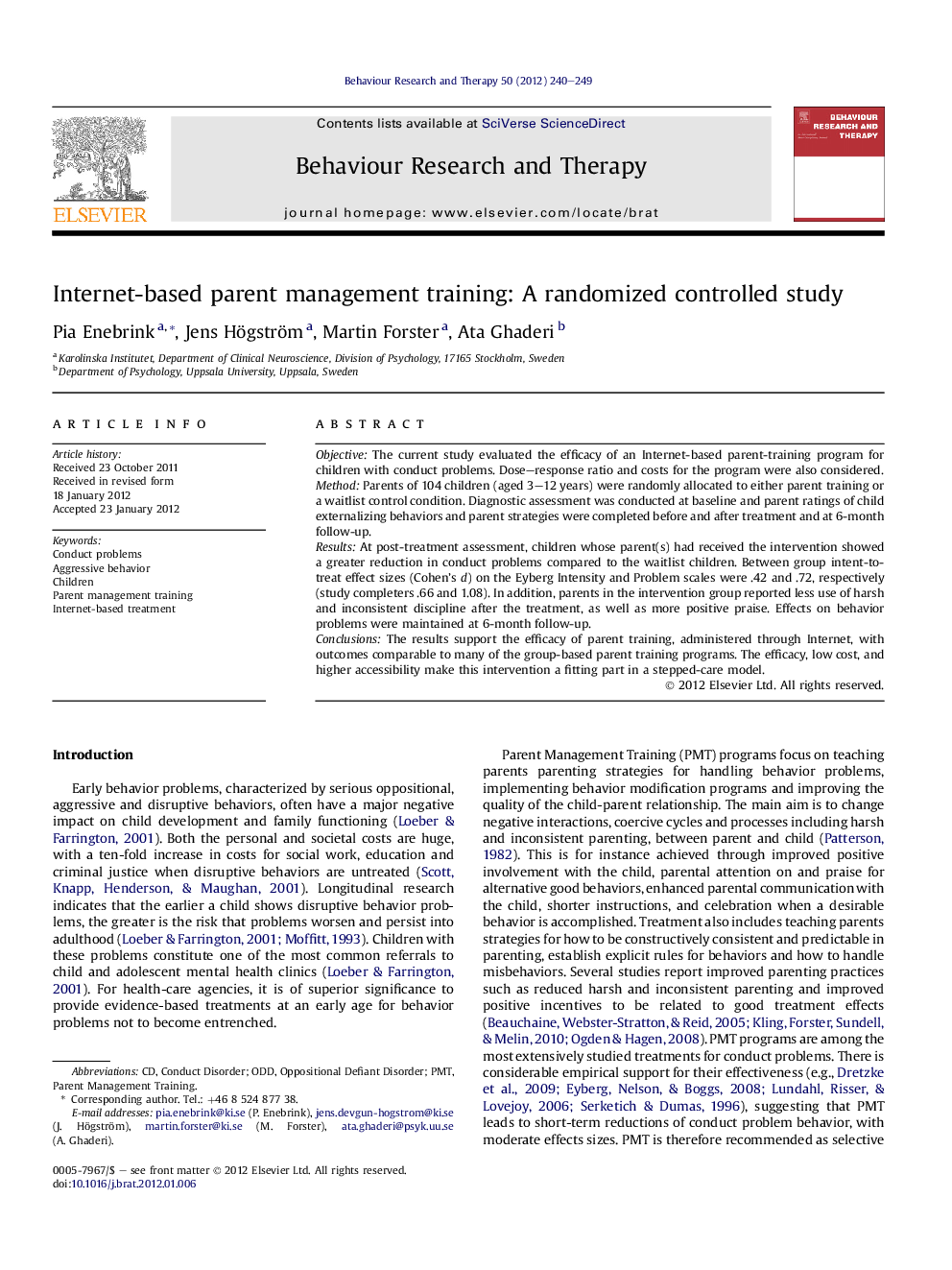| Article ID | Journal | Published Year | Pages | File Type |
|---|---|---|---|---|
| 902033 | Behaviour Research and Therapy | 2012 | 10 Pages |
ObjectiveThe current study evaluated the efficacy of an Internet-based parent-training program for children with conduct problems. Dose–response ratio and costs for the program were also considered.MethodParents of 104 children (aged 3–12 years) were randomly allocated to either parent training or a waitlist control condition. Diagnostic assessment was conducted at baseline and parent ratings of child externalizing behaviors and parent strategies were completed before and after treatment and at 6-month follow-up.ResultsAt post-treatment assessment, children whose parent(s) had received the intervention showed a greater reduction in conduct problems compared to the waitlist children. Between group intent-to-treat effect sizes (Cohen’s d) on the Eyberg Intensity and Problem scales were .42 and .72, respectively (study completers .66 and 1.08). In addition, parents in the intervention group reported less use of harsh and inconsistent discipline after the treatment, as well as more positive praise. Effects on behavior problems were maintained at 6-month follow-up.ConclusionsThe results support the efficacy of parent training, administered through Internet, with outcomes comparable to many of the group-based parent training programs. The efficacy, low cost, and higher accessibility make this intervention a fitting part in a stepped-care model.
► RCT of Internet-based Parent Training for conduct problems. ► Treatment leads to significant reduction in child conduct problems. ► Parents use less harsh, inconsistent discipline and more praise and incentives after treatment. ► Outcomes are comparable to group-based parent training programs. ► Main outcomes remained at 6-month follow-up.
